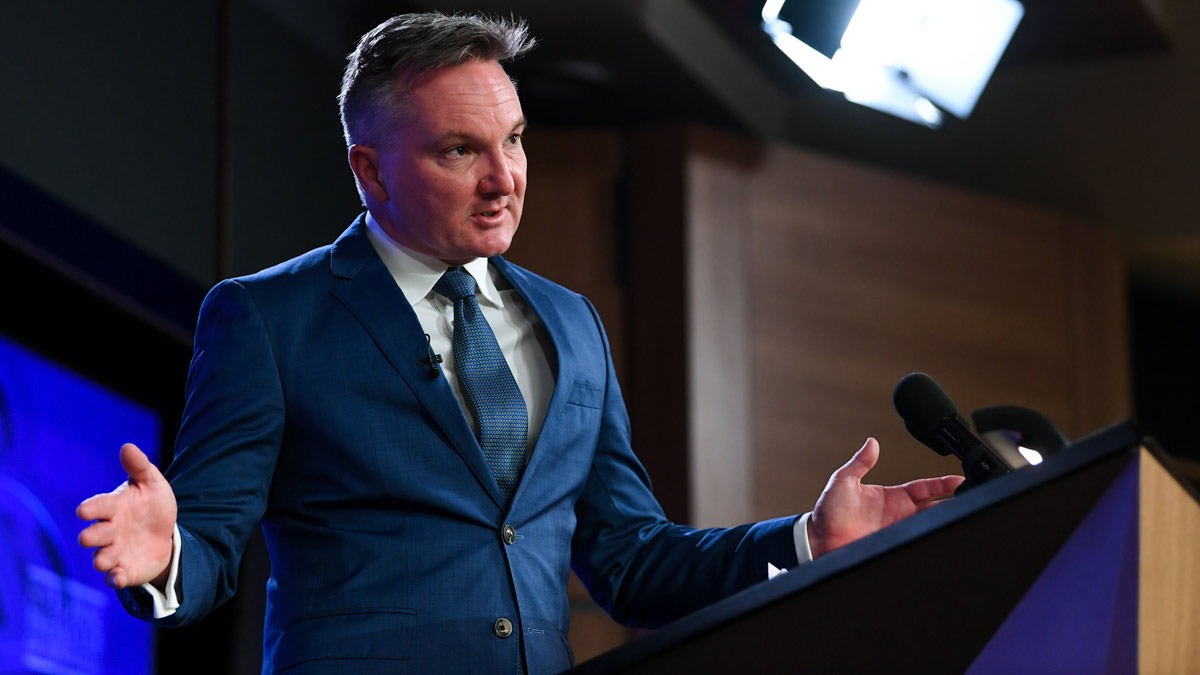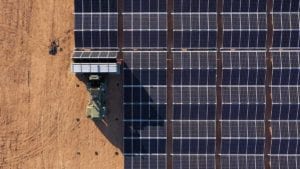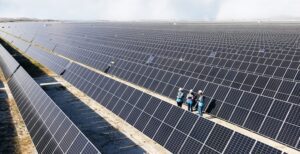Australia has a new Labor government and a significant climate-focused cross bench, and it might just mark the beginning of the end of an almost decade-long grip the fossil fuel industry has held over national climate change and energy policy.
Two of the country’s most powerful fossil fuel industry lobbyists held key positions in Scott Morrison’s office, with John Kunkel, the former deputy CEO of the Minerals Council of Australia, acting as his chief of staff.
Kunkel was assisted by a former chief executive of the Minerals Council, Brendan Pearson, who acted as a senior advisor to Morrison before scoring an appointment as Australia’s ambassador to the OECD.
The Minerals Council, of course, was the coal industry lobby group that delivered the lacquered lump of coal that Morrison waved around on the floor of parliament.
With new ministers come new advisors, and Labor’s more ambitious policies leave little room for coal and gas industry holdouts.
A new government almost always starts with a cleaning out of key public service posts and government board positions. The first to go on Monday morning was Australia’s most senior bureaucrat, the secretary of the Department of Prime Minister and Cabinet, Phil Gaetjens, stood down almost immediately after Anthony Albanese was sworn in as prime minister.
While, the controversial Gaetjens – who had also served as Morrison’s chief of staff and was his go-to for handling ‘independent’ investigations into the conduct of government staffers – did not have established links to the fossil fuel industry, his disposal will be followed by broader overhaul of the federal bureaucracy under the new Labor government.
The boards of key energy agencies like the Australian Renewable Energy Agency (ARENA), Clean Energy Regulator, and the Climate Change Authority – among others – will also be the target of a shakeup.
Outgoing federal energy minister Angus Taylor had sought to stack these agencies with the appointment of those sympathetic to the Morrison government’s pro-fossil fuel stance.
The ARENA board is chaired by friend of Angus Taylor Justin Punch and features former Taylor political advisor John Hirjee, former Rio Tinto executive Stephen McIntosh, and co-founder of BAEconomics, Anna Matysek, a firm that authored wildly panned modelling used to attack Labor energy policies, and led attacks on the Renewable Energy Target.
The Emissions Reduction Assurance Committee is chaired by another former Minerals Council executive, David Byers, as well as petroleum hydrogeologist Allison Hortle, and the other co-founder of BAEconomics, Brian Fisher.
These appointments contributed to calls for an overhaul of the Emissions Reduction Fund, and Australia’s main carbon offset regime, after credible claims emerged that it was not delivering genuine emissions reductions.
The board of the Climate Change Authority is currently chaired by former Origin Energy CEO and former APPEA director Grant King, and its membership includes fossil fuel industry lobbyist Susie Smith, who also serves as CEO of the Australian Industry Greenhouse Network.
Labor’s incoming minister for energy and climate change, Chris Bowen, is expected to be sworn in as minister for climate change and energy next Monday when the future Albanese ministry convenes in Canberra.
Bowen will have the task of reshaping the boards of these agencies, rebuilding confidence in climate policy governance, and building up his own ministerial office with advisors to deliver both Labor’s own policies and navigate the demands of a much enlarged parliamentary crossbench.
Bowen’s staff primarily consists of a group of advisers that followed Bowen from his prior role as shadow health minister into his current role as climate and energy spokesperson, when he swapped portfolios with Mark Butler in early 2021.
The appointments will be made after newly sworn-in prime minister Anthony Albanese’s trip to Japan to attend a meeting of Quad leaders.
Climate Council Researcher, Dr Wesley Morgan, said the change of government presents an opportunity to repair its international relationships by re-engaging with global efforts to tackle climate change – starting with the Quad meeting.
The Quad meeting is Prime Minister Albanese’s first chance to showcase what strong leadership looks like from a country that’s been a global climate embarrassment for far too long,” Dr Morgan said.
“This is a pivotal moment. Climate action is a key area for cooperation among Quad states who make up some of our most important trading partners and allies. The US in particular, our key security ally, has pressed Australia to do more on climate as part of Quad collaboration.”
“We are well-placed to be a renewables superpower in the region. As one of the sunniest and windiest places on the planet – we should be cashing-in on supplying growing economies with our clean energy, minerals and products,” he added.






